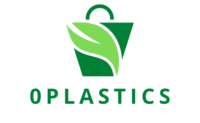In the global shift towards sustainability, small businesses are emerging as influential champions in the fight against plastic pollution. These local heroes operate within the plastic-free markets, making a significant impact by providing eco-friendly alternatives and fostering a sense of community. This article explores the stories of these small businesses, shedding light on the ways they are making a big difference in the pursuit of a plastic-free world.
1. Community-Centric Initiatives:
Local heroes in plastic-free markets prioritize community engagement. These businesses often start with a strong connection to their local communities, understanding the unique needs and preferences of residents. From organizing clean-up events to hosting educational workshops, these initiatives create a sense of shared responsibility and inspire collective action.
2. Curating Unique and Sustainable Offerings:
Small businesses in plastic-free markets distinguish themselves by curating unique and sustainable product offerings. Whether it’s handcrafted, locally sourced goods or innovative eco-friendly solutions, these businesses prioritize quality over quantity. Their commitment to offering distinctive alternatives encourages consumers to make conscious choices that align with their values.
3. Embracing Local and Ethical Sourcing:
Local heroes prioritize local and ethical sourcing practices. By collaborating with nearby farmers, artisans, and producers, these businesses reduce their carbon footprint and support the growth of sustainable practices within the community. Ethical sourcing enhances the authenticity of their products, resonating with consumers who value transparency and ethical production.
4. Educational Outreach and Awareness:
Raising awareness is a cornerstone of the small businesses making a difference in plastic-free markets. Whether through social media campaigns, in-store signage, or community events, these businesses actively educate consumers about the environmental impact of plastic and the benefits of choosing sustainable alternatives. By becoming hubs of information, they empower consumers to make informed decisions.
5. Adaptability and Innovation:
The agility of small businesses allows them to quickly adapt to changing market trends and incorporate innovative solutions. From experimenting with new materials to introducing creative packaging designs, local heroes in plastic-free markets stay ahead of the curve. Their nimbleness fosters a culture of continuous improvement and innovation.
6. Personalized Customer Relationships:
Building strong, personalized relationships with customers is a hallmark of these local heroes. Small businesses in plastic-free markets often know their customers by name, understand their preferences, and tailor their offerings accordingly. This personalized approach creates a sense of loyalty and encourages repeat business, contributing to the sustainability of the local economy.
7. Partnerships with Like-Minded Businesses:
Collaboration is key for local heroes in plastic-free markets. Small businesses often form partnerships with like-minded enterprises, creating a network that amplifies their impact. Whether through joint events, shared initiatives, or cooperative marketing efforts, these partnerships strengthen the collective commitment to reducing plastic waste.
8. Supporting Circular Economy Practices:
Embracing circular economy practices is a common trait among local heroes. These businesses actively promote the repair, reuse, and recycling of products. Repair workshops, upcycling initiatives, and take-back programs contribute to the circularity of their offerings, reducing waste and encouraging a sustainable approach to consumption.
9. Engagement in Policy and Advocacy:
Local heroes extend their influence beyond their storefronts by engaging in policy discussions and advocacy. By participating in local environmental initiatives, supporting plastic reduction policies, and advocating for sustainable practices, these businesses contribute to shaping a regulatory environment that aligns with their values and objectives.
10. Resilience in the Face of Challenges:
Small businesses in plastic-free markets display remarkable resilience in the face of challenges. Whether navigating economic uncertainties or overcoming logistical hurdles, these local heroes persist in their commitment to sustainability. Their determination and passion inspire both customers and fellow businesses in the shared mission of reducing plastic consumption.
In conclusion, local heroes in plastic-free markets demonstrate that small businesses can wield significant influence in the global fight against plastic pollution. Through community-centric initiatives, unique and sustainable offerings, local and ethical sourcing, educational outreach, adaptability, personalized customer relationships, partnerships, support for circular economy practices, engagement in policy advocacy, and resilience, these businesses exemplify the transformative power of grassroots efforts. As they continue to make a big difference, their stories inspire others to join the movement towards a plastic-free and more sustainable future.
